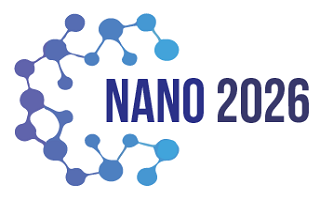3rd World Congress on
Nanotechnology
October 29-30, 2026 | Berlin, Germany

Nano 2026

Liverpool John Moores University, UK
Abstract:
The large surface area of the lungs with the thin epithelial membrane and dense vasculature makes lung delivery a suitable route of administration of biopharmaceuticals for local or systemic targets. Delivery of biologicals such as therapeutic proteins, vaccines, genes etc, to the lungs has many challenges. This includes, overcoming the biological barriers at sites of administration and action, recognition and elimination by immune system, stability of the drug. Nanocarriers provide platforms to overcome these challenges with better outcomes. However, formulation methods of nanocarriers face many challenges and is a critical factor, which can affect their physicochemical properties on the pharmacokinetics or the therapeutic effects.
We have developed polymer-based nanocarrier systems incorporating biologicals (miRNA, vaccine candidates, antimicrobial peptides). Furthermore, we have incorporated these into dry powder microcarriers using spraydrying technology suitable for lung delivery. We have managed to retain biological stability and activity of biopharmaceuticals, and nanocarrier size following redispersion after spraydrying, and performed aerosolisation studies demonstrating suitability for lung delivery. We have applied the technology in the treatment and management of local lung diseases (COPD, lung infections) and vaccination.
Biography:
Professor Imran Saleem is a professor in nanomedicine within the School of Pharmacy & Biomolecular Sciences, Liverpool John Moores University, UK and Leader of Nanomedicine, Formulation & Delivery Research Group. His research group is focused on the design and development of nanocarriers for delivery of biomacromolecules including, genes, peptides, vaccines and drugs to their site of action, with particular emphasis on lung diseases via pulmonary delivery. He has over 20 years’ experience in the area of micro/nanoparticle formulation and drug delivery systems, and has published extensively in peer-reviewed journals, conference abstracts and book chapters.
